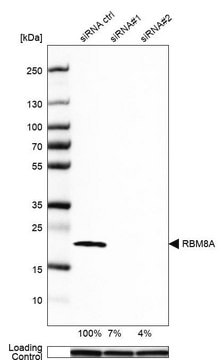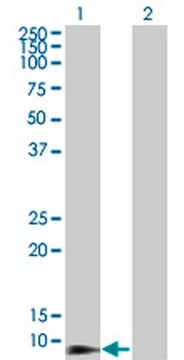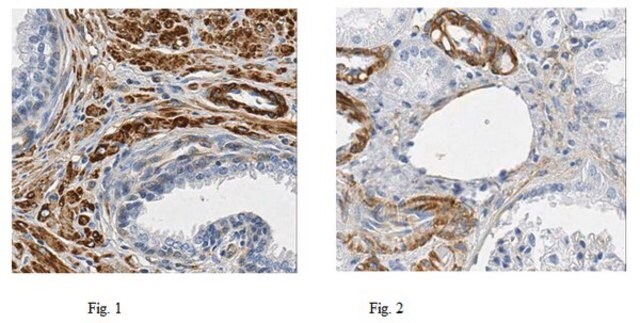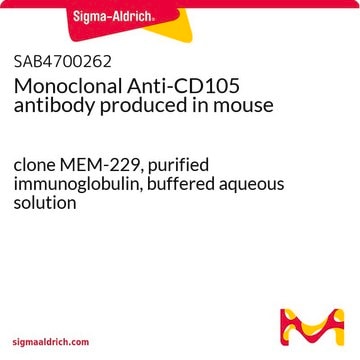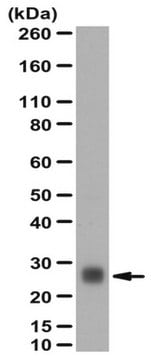05-1511
Anti-Y14 Antibody, clone 4C4
clone 4C4, from mouse
Synonym(s):
Binder of OVCA1-1, RNA binding motif protein 8A, RNA binding motif protein 8B, RNA-binding motif protein 8A, RNA-binding protein Y14, Ribonucleoprotein RBM8A, ribonucleoprotein RBM8
About This Item
Recommended Products
biological source
mouse
Quality Level
antibody form
purified immunoglobulin
antibody product type
primary antibodies
clone
4C4, monoclonal
species reactivity
mouse, rat, human
technique(s)
immunocytochemistry: suitable
immunoprecipitation (IP): suitable
western blot: suitable
isotype
IgG2bκ
NCBI accession no.
UniProt accession no.
shipped in
wet ice
target post-translational modification
unmodified
Gene Information
human ... RBM8A(9939)
General description
Specificity
Immunogen
Application
Immunoprecipitation Analysis: A representative lot was used by an independent laboratory in immunoprecipitation. Kashima, I., et al. (2006). Genes & Dev. 20:355-367.
Epigenetics & Nuclear Function
RNA Binding Protein (RBP)
Quality
Western Blot Analysis: 0.5 µg/ml of this antibody detected Y14 on 10 µg of HeLa cell lysate.
Target description
Physical form
Storage and Stability
Analysis Note
HeLa cell lysate
Other Notes
Disclaimer
Not finding the right product?
Try our Product Selector Tool.
Storage Class Code
12 - Non Combustible Liquids
WGK
WGK 1
Flash Point(F)
Not applicable
Flash Point(C)
Not applicable
Certificates of Analysis (COA)
Search for Certificates of Analysis (COA) by entering the products Lot/Batch Number. Lot and Batch Numbers can be found on a product’s label following the words ‘Lot’ or ‘Batch’.
Already Own This Product?
Find documentation for the products that you have recently purchased in the Document Library.
Our team of scientists has experience in all areas of research including Life Science, Material Science, Chemical Synthesis, Chromatography, Analytical and many others.
Contact Technical Service

